Each year, Florida Sea Grant selects exceptional graduate students to award up to $25,000 in funds for their research in coastal and ocean science. In 2024, seven students across Florida were selected to be a part of this prestigious cohort of Graduate Fellows.
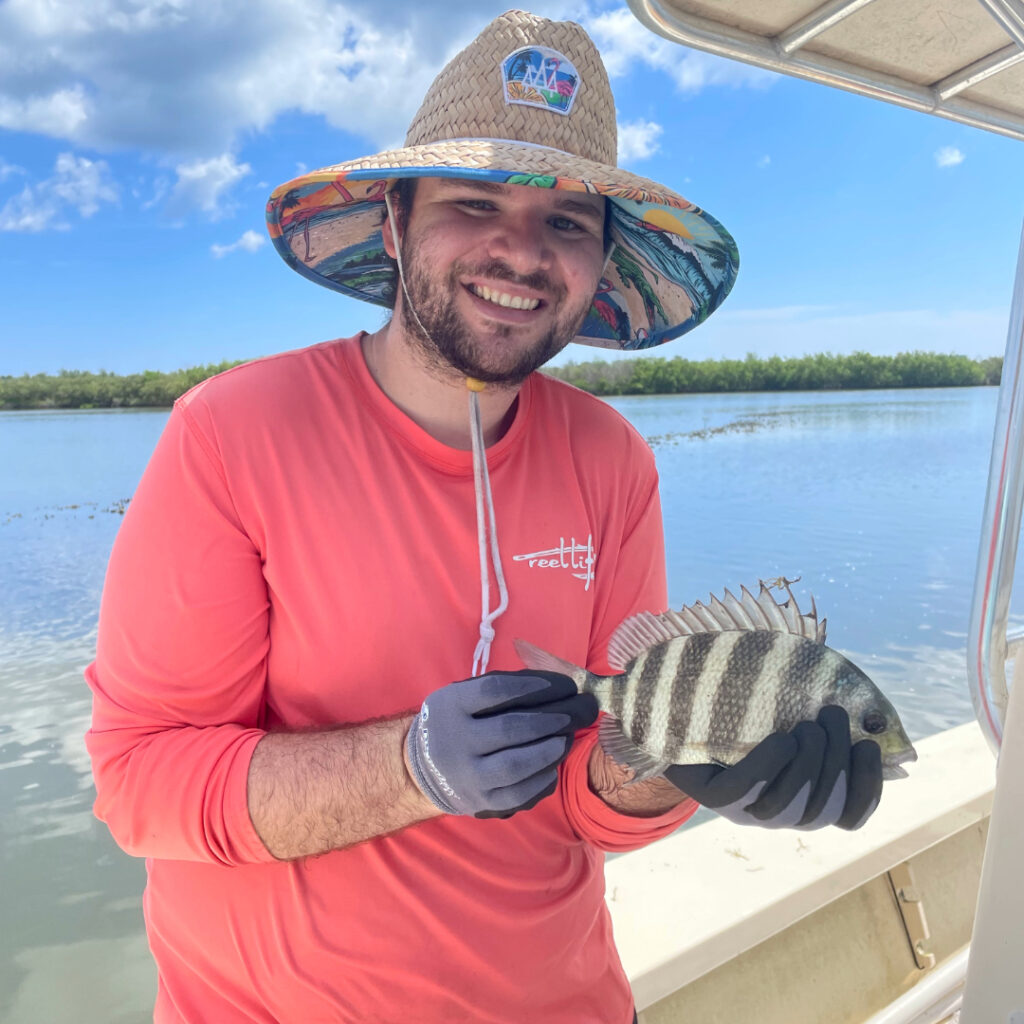 Christopher Crowder
Christopher Crowder
Christopher Crowder is a Greenwood, Indiana, native and a PhD student at the University of Central Florida. For him, this fellowship fills the gap in his needs for support and equipment.
“Florida Sea Grant has a great network of scientists that tackle pressing issues from multiple inter-connected disciplines,” said Crowder. “Their support will be invaluable in my studies.”
Crowder aims to analyze fish sampling designs and spatial relationships among fish habitats. Using extensive datasets from state and local agencies, he investigates how residual factors like habitat heterogeneity influence predator and prey fish abundance. He hopes the results will help him offer recommendations for improving fish habitat management practices. The fellowship funds will also be used to meet necessary training goals and share his findings through publications and conferences.
“I am also looking forward to connecting with and learning from Florida Sea Grant scientists, particularly those that work on interdisciplinary coastal topics,” said Crowder.
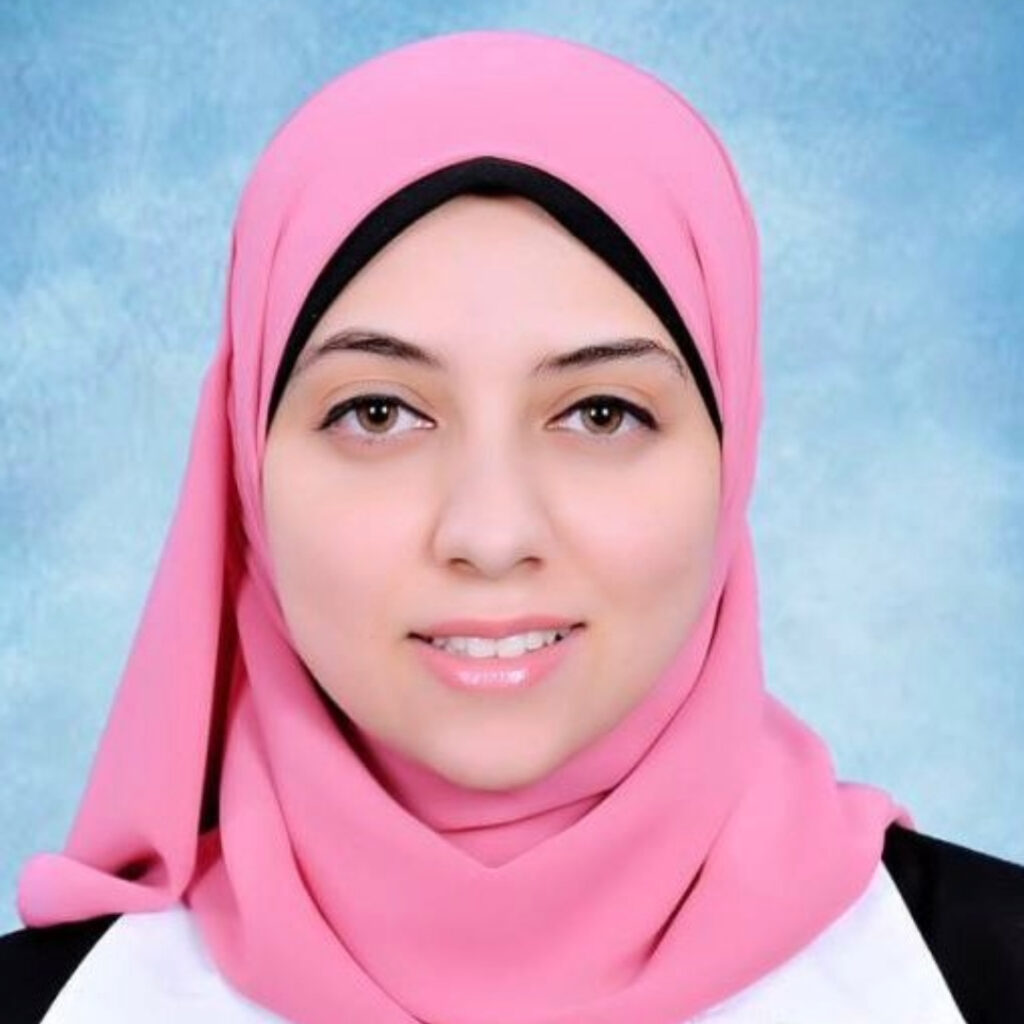 Diana Abdelkerim
Diana Abdelkerim
Diana Abdelkerim, from Sohag, Egypt, is pursuing a PhD in civil engineering from Florida International University.
She is researching how slender structures, such as light poles and communication masts, respond to wind at the Wall of Wind Experimental Facility. Abdelkerim hopes to improve the resilience of coastal communities against extreme wind events like hurricanes, creating safer infrastructure that benefits Florida and engineering communities generally.
“The opportunity to collaborate with experts at Florida Sea Grant will help ensure that my findings are applied to real-world challenges faced by coastal communities,” said Abdelkerim. “I look forward to contributing to Florida Sea Grant’s mission by providing research that supports better planning, policy development, and infrastructure design for vulnerable coastal areas.”
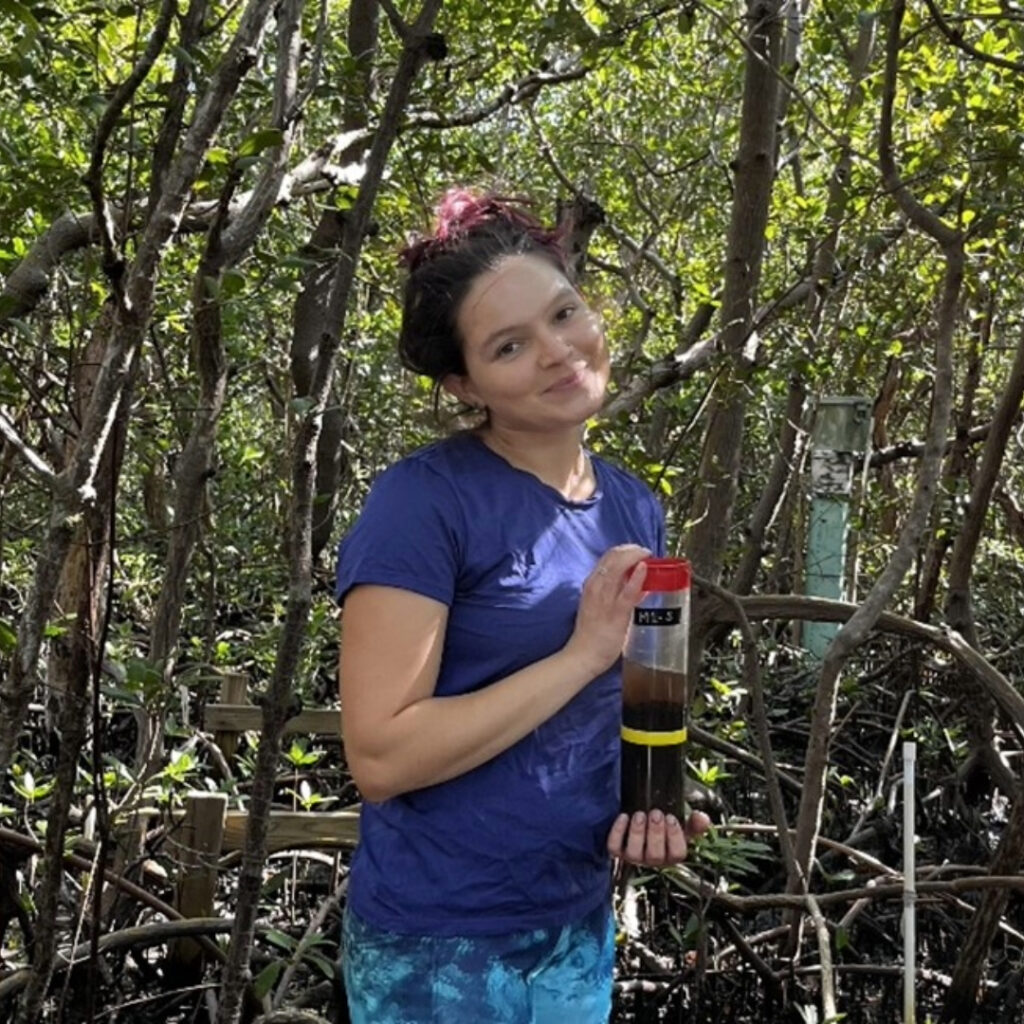 Gabriela Reyes
Gabriela Reyes
Gabriela Reyes is a PhD candidate in the University of Florida Institute of Food and Agriculture Science (IFAS) Department of Soil, Water and Ecosystem Science. She studies how urbanization and human influences impact the biogeochemistry and ecology of South Florida mangroves and their services.
“I wanted to be part of the Florida Sea Grant network that is making a difference in the coastal ecosystems and communities in my hometown state of Florida,” said Reyes. “My career goal is to conduct actionable science for the well-being of both humans and coastal ecosystems by integrating research and extension.”
Although highly urbanized mangroves in Miami are fragmented, she explained, they are crucial to carbon storage, biodiversity, and nutrient removal in the area. With this fellowship, Reyes can study impacted mangroves and recommend solutions to resources managers for their resilience planning. She will also use funds to increase the accessibility of her findings to Spanish-speaking audiences and K-12 students.
“I will be collaborating with Florida Sea Grant Agents who are part of UF/IFAS’s CAFÉ Latino on translating some of my work into Spanish,” said Reyes. “This fellowship experience will allow me the opportunity to connect with my community in new ways through extension.”
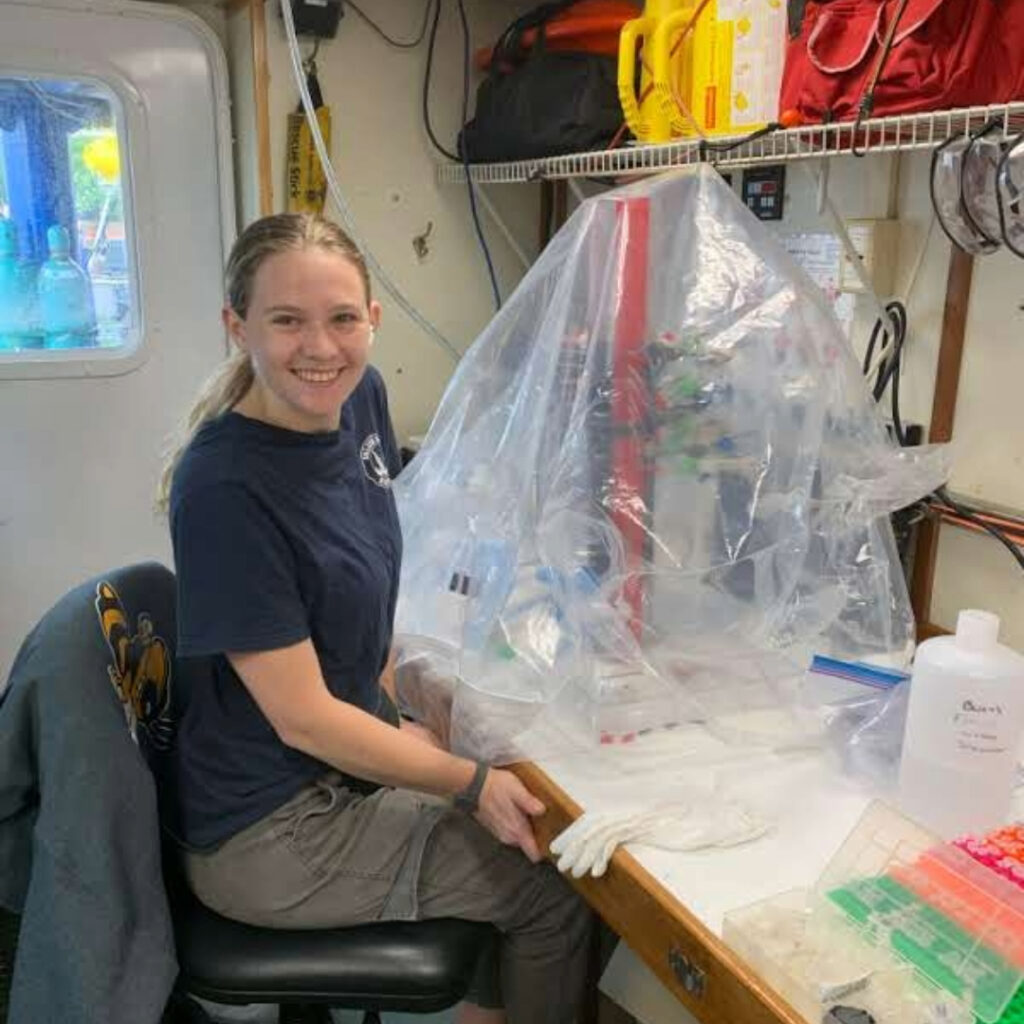 Hanna Bridgham
Hanna Bridgham
Hanna Bridgham is pursuing a PhD at Florida Atlantic University’s Harbor Beach Oceanographic Institute, a long way from her hometown of Eatonville, Washington. In the Geochemistry and Geochemical Sensing Lab, she uniquely combines biogeochemistry and ocean optics.
“Florida Sea Grant’s approach to combining science, education, policy, and, most importantly, people pursuing a thriving coastline, connected with me on a core level as a scientist and a person,” said Bridgham.
With this fellowship, she will acquire the resources to analyze sediment samples collected in Florida Bay, testing her theory on the sources of carbon in coastal muds responsible for optic darkening of the water. These carbon and iron-rich sediments, while helpful to some habitats, create murky waters that can interfere with photosynthesizing flora. Bridgham’s research will deepen research into Florida’s carbon cycle, water clarity, and how sediment chemistry affects the environment.
“While I am excited about many things this year as a Florida Sea Grant fellow, I am most excited about the science waiting to be discovered under the water,” said Bridgham.
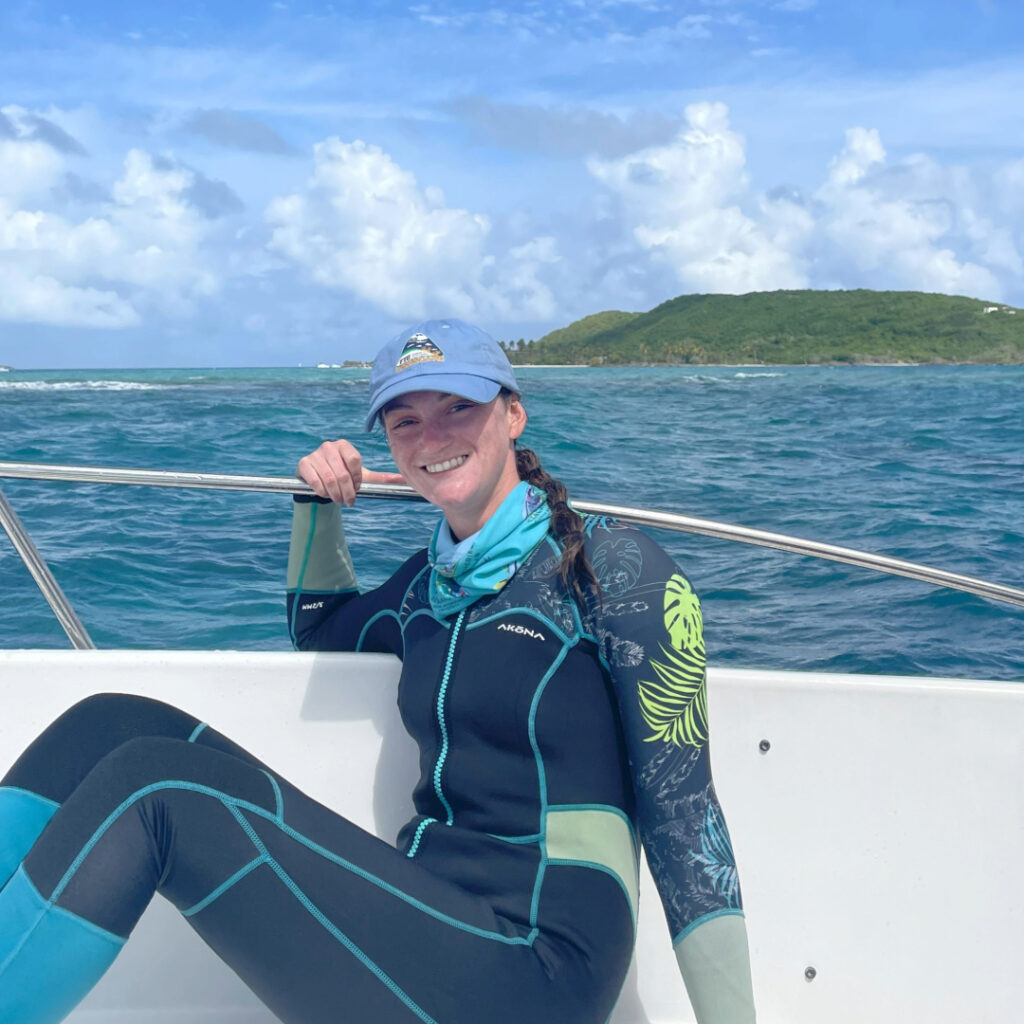 Hannah-Marie Lamle
Hannah-Marie Lamle
Hannah-Marie Lamle is a Syracuse, Indiana, native working in the Santos Seascape Ecology Lab at Florida International University. She began her graduate journey exploring different research interests before landing on trait-based ecology in coral reefs.
“I chose to apply for the Florida Sea Grant to get my ideas off the ground and begin working on field studies for my [PhD] dissertation proposal,” said Lamle
Her research begins with collecting non-invasive coral health data using underwater hyperspectral imaging. Coral reefs across South Florida will be photographed and compared by their physiological traits, such as biomass, chlorophyll content, and photosynthetic activity.
“We can associate select traits to the coral spectral signatures, creating a coral health index that in the future can be used to assess stress in coral before it is detected by the naked eye via bleaching,” Lamle explained.
Throughout this fellowship, she is most excited to collect data in the field, which is her favorite part of the job, and to see how her own research project comes to life.
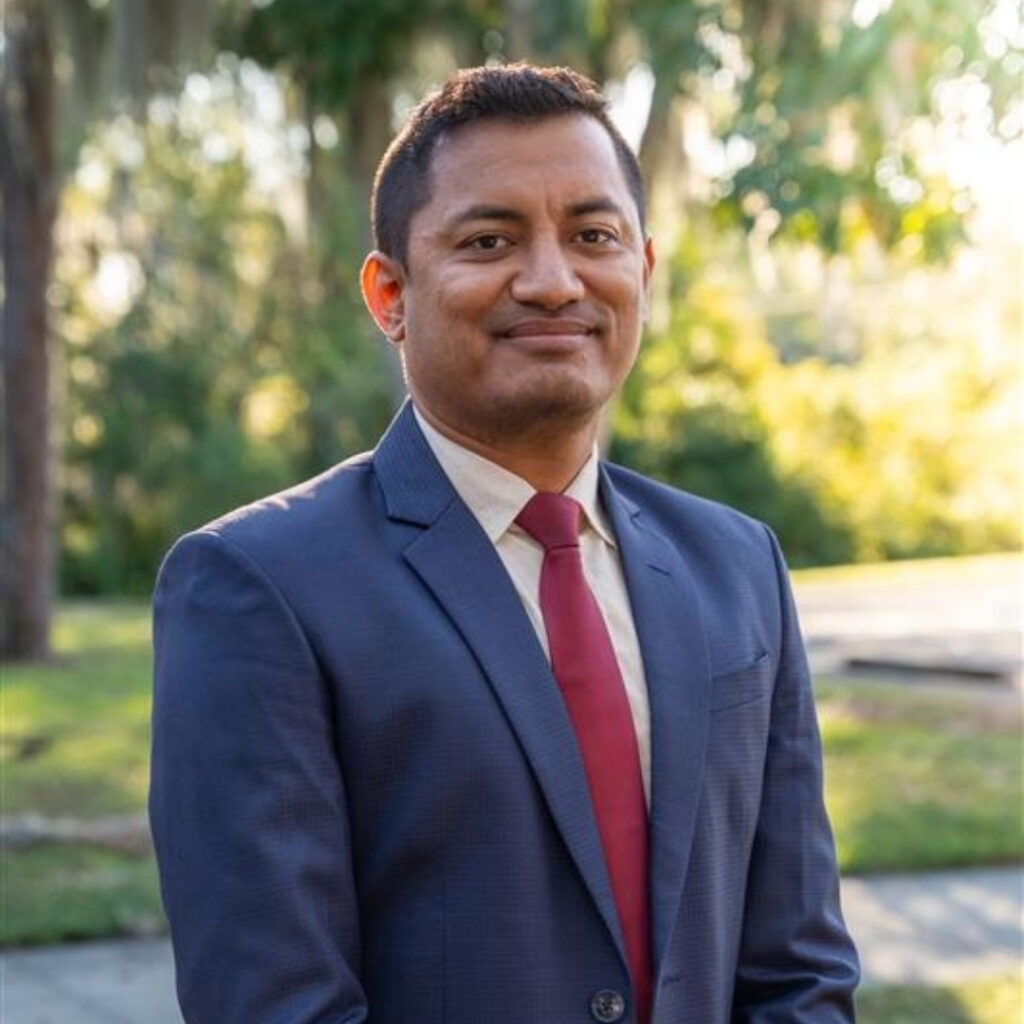 Saurav Shrestha
Saurav Shrestha
From the foothills of Bharatpur, Nepal, Saurav Shrestha has come to the University of Florida to pursue a PhD in civil engineering. More specifically, Shrestha is studying coastal geotechnics, inspired by the dune erosion in Flagler County, Florida.
“I found that working with Florida Sea Grant would be a perfect pathway for me to serve the community and achieve my goals together,” said Shrestha. “This fellowship would provide me the financial support to carry out my research, as well as the opportunity to interact with people from diverse backgrounds committed towards a common goal of sustainable and better coastal community.”
He aims to discover the critical parameters for dune toe collapse, develop a risk assessment framework, and share mitigation strategies beyond Flagler County. Through collaboration, Shrestha wants to transform and apply his research towards dune management, restoration and protection.
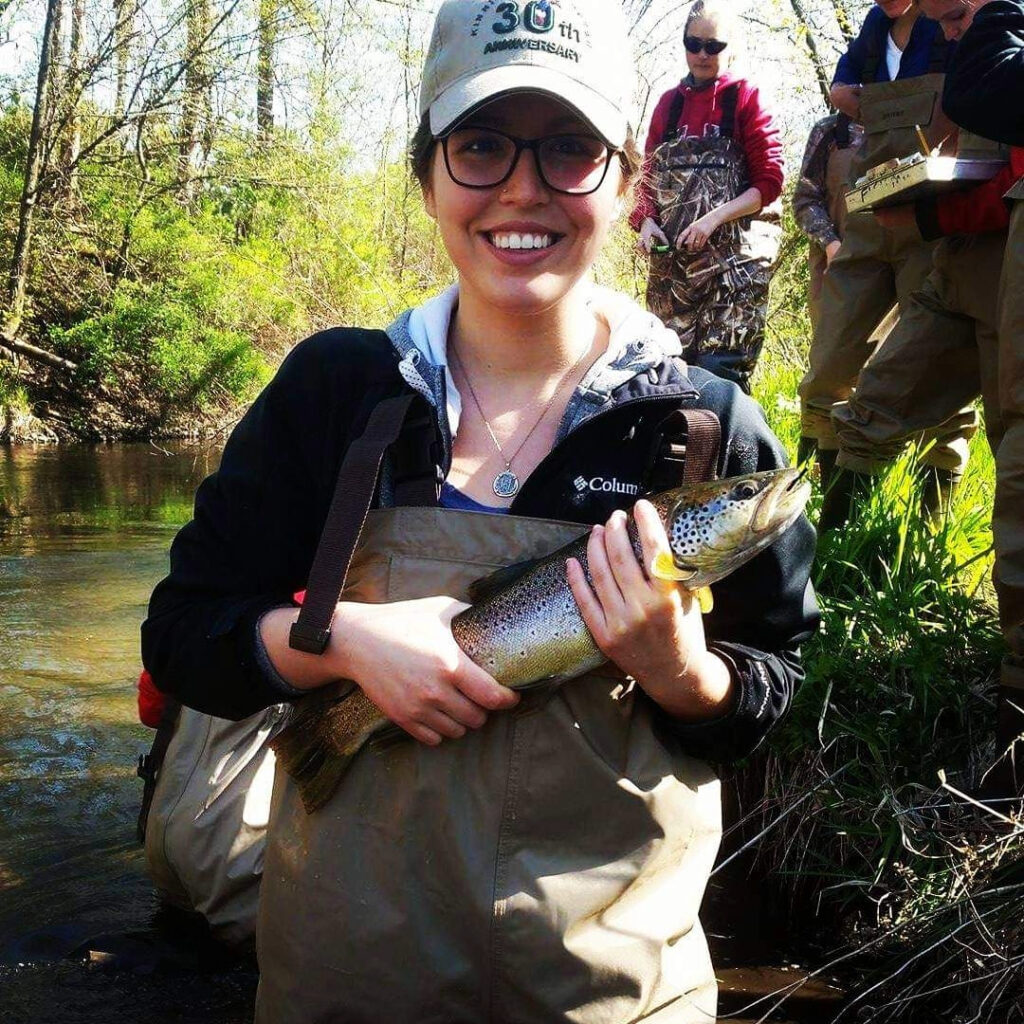 Taylor Hill
Taylor Hill
Taylor Hill, from Kenosha, Wisconsin, is pursuing a PhD in integrative and conservation biology at the University of Central Florida under Dr. Michelle Gaither.
Her research seeks to understand coral reef connectivity across various scales using spatial data, genomics and modeling. Similar to Reyes’ research, these findings can guide restoration efforts like marine spatial planning, reef fish distribution, and assessing stock structures.
The fellowship, Hill says, will support costs for molecular data genomics analyses.
“I look forward to collaborating with Florida Sea Grant, stakeholders, and fellow scientists who share my goals of protecting and understanding Florida’s reef systems,” said Hill. “In a changing climate, it is essential to understand how these processes and connections operate, as our actions to protect one reef can impact another hundreds of kilometers away.”
To learn more about Florida Sea Grant’s Graduate Fellowship and other student opportunities, please visit our website.